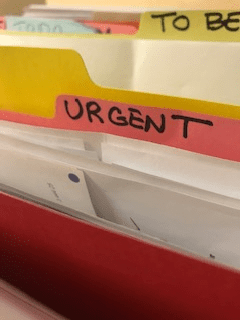
Are Stimulus Funds Protected In Bankruptcy?
Whether your stimulus funds are protected in bankruptcy is a function of two things: Current Monthly Income (CMI) calculations, and the Bankruptcy Estate. We can easily address both concerns, which will hopefully give you a better understanding of what happens to your stimulus funds in a Chapter 7 bankruptcy.
Current Monthly Income In Bankruptcy
Generally speaking, one way to qualify for a Chapter 7 bankruptcy is to calculate your CMI. The bankruptcy code takes a broad definition of income, and includes gifts, inheritance, W2 income, income from small business, etc. If you’re receiving stimulus funds during the 6-month period prior to bankruptcy, you want to know if those funds are added to your income averages. After all, it could mean the difference between qualifying for bankruptcy or not.
There’s good news regarding stimulus funds and CMI. Your stimulus funds are not included in your CMI calculations for Chapter 7. Accordingly, you also can not use anticipated stimulus funds when calculating your ability to re-pay creditors in a Chapter 13.
The Bankruptcy Estate
The second question to answer regarding stimulus funds is whether they are part of the Bankruptcy Estate. If an asset is part of the Bankruptcy Estate, then the bankruptcy trustee can pursue the asset in Chapter 7 unless you have a way to exempt it. If you have unexempt assets when filing a Chapter 7, you may decide to dispose of assets in an allowable way prior to filing, or to delay filing until the unexempt asset is otherwise addressed. Your bankruptcy attorney can assist with answering questions regarding reasonable planning prior to filing bankruptcy.
The Coronavirus Aid, Relief and Economic Security Act of 2020 (“CARES” Act) does not speak to the issue of whether funds received through the CARES Act are part of the Bankruptcy Estate. As a result, the safe approach is to assume the stimulus funds are part of the Bankruptcy Estate. This means you may be advised by your attorney to spend those funds on allowable expenditures prior to filing bankruptcy, or to use available exemptions to exempt the funds if you still have them in your possession at the time of your bankruptcy filing.
In Conclusion
While this may seem somewhat confusing, it is only one of many financial considerations your bankruptcy attorney will sort through with you prior to the filing of your case. Provided you’re aware of how the bankruptcy trustee will treat your assets, you can enter into bankruptcy without any surprises.
Speak With A Charlotte Bankruptcy Lawyer Today
Getting started with bankruptcy planning is easy. You can call us at 704.749.7747 for a free consultation or click HERE to request a phone call. A lawyer will call you today.

